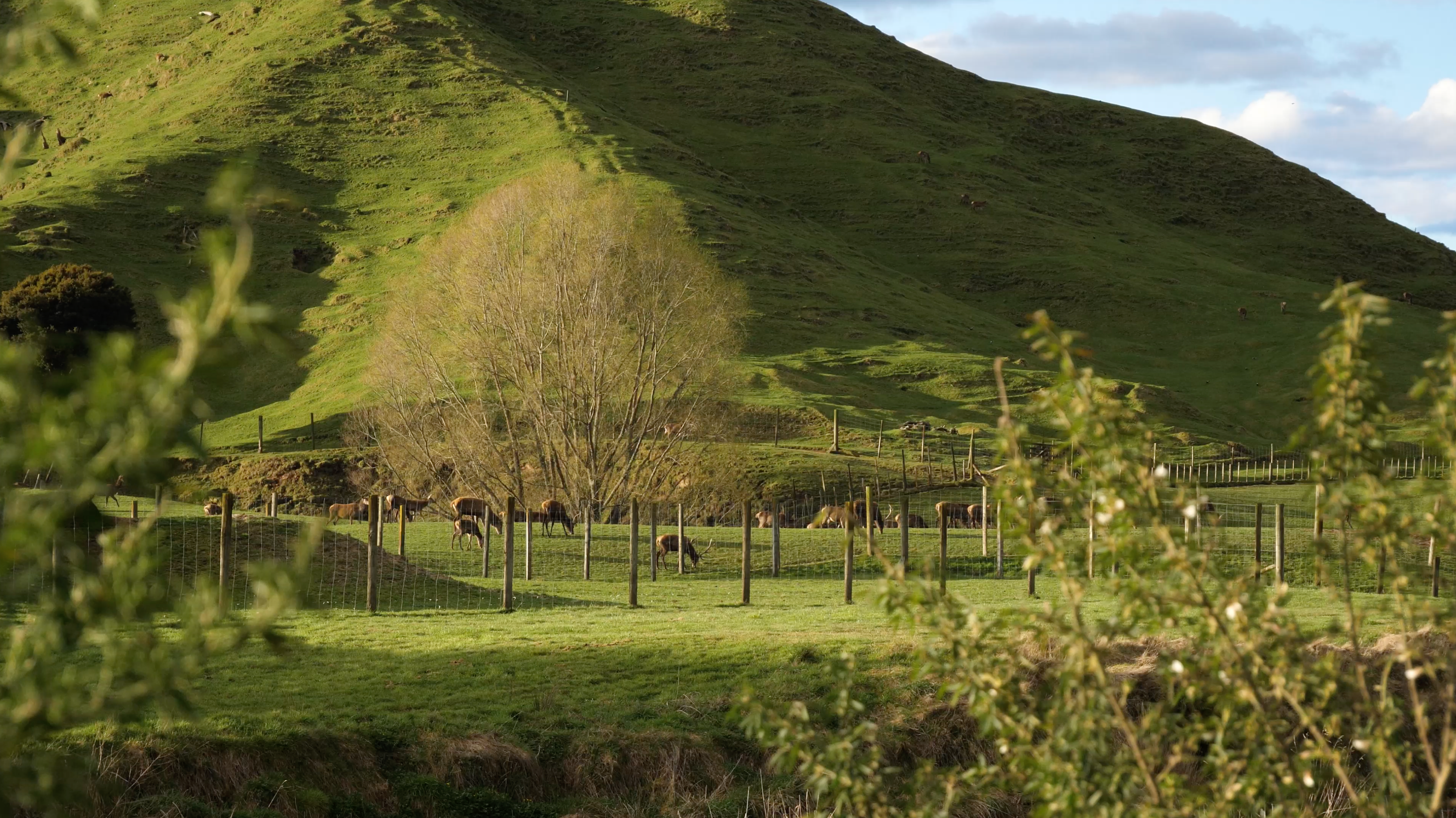If you’re just starting the process of buying bare land in NZ, and you’ve not done it before, there’s a lot to think about! It’s important to do your due diligence when buying land, so to make things easier, we've listed ten things that you should be looking out for when you visit potential properties.
Aspect
A north or northeast facing property is ideal if you are going to live off grid. A northerly aspect is necessary for maximising your solar power generation, and it’s also a cheap way to heat your house. The more sun you can catch, the less you need to use power for heating, allowing you make use of some passive home design principles. Life is generally nicer with a north facing property! The days feel a little longer, it’s easier to grow things, and you get the best balance of sun throughout the day.
Water
Maximising your water sources will make life easier, especially for summer. While you can catch water from your roof it is not as cost effective as having your own creek, river or dam. If you need to water plants, then collected rainwater will likely not be enough unless you have a lot of tanks and collection areas.
It’s also important to consider whether you have the finances to buy tanks and pumps, pay contractors, or pay for potential resource consents to create a dam or bore – these will all affect what the best property is for you. Water is one of the first things you want set up when you move on, so make sure you’re prepared for any costs required in the short term.
If you think you may get access to water on a neighbouring property, make sure it is legally recorded as an easement on the title to protect that access.
Access
Don’t take it for granted that the property will have good access. If you have any plans to relocate a building onto the property, you want good access. You should also try to find out whether the property or parts of it might be cut off due to flooding.
Check if you’ll share any part of your access with somebody else and what ongoing costs and maintenance are involved. Also remember that the longer the driveway, the more expensive it is to maintain. Limestone is cheap but gets dusty in summer weather and sticky in the rain – while blue rock doesn’t have these problems, it’s significantly more expensive.
Covenants, easements and other restrictions.
Covenants are rules that apply to the land and affect how you can use it, while easements give someone else use of or access to your land. Craig’s property for example has a water easement, as there are other properties below his that need the water from his dam for animals.
A number of properties he looked at had covenants that stated you couldn’t live in a caravan or shed on site – so to move on you’d need to build a proper dwelling immediately. Some properties have a limit on livestock, some don’t allow removal of vegetation, and some require fencing around native bush.
There are lots of different easements and covenants that you might find, so make sure to read the property documents and ask about them.
Flood or landslip risks
Check the property’s distance from rivers and wetlands and whether those flooding would likely affect you. You should also check if you have a dam up the hill from you and how secure it is, as well as any landslip risks. A LIM report should have this information on it, as it’s part of the normal due diligence when buying land, but you can also enquire with the neighbours and real estate agent.
Size
How much time do you want to put into maintaining your property? Mowing lawns, maintaining fences, clearing drains - all these things take time and physical effort. Make sure you are happy to do the work required for the size of property you’re looking at and know what equipment you’ll need. Typically, the larger the property the bigger the equipment required.
Subdivision rights
Subdividing your property may be great way to recoup some of the costs of buying bare and in NZ, however, it can also come with a lot of fees and legal costs that may make it less profitable than you had hoped. If this is part of your plan, make sure you check if the land can be subdivided, as not all land can be subdivided.
Soil type
Is the soil appropriate for growing the type of crops you’re thinking of? For example, much of Northland’s soil is prone to erosion, and often very wet in winter and rock-hard in summer. These things can be managed, but you need to know what your soils are capable of growing and what work they will require.
Cell coverage and broadband
Even if you’re going off grid to get away from technology, it is important that you have communication in an emergency and broadband makes it easier to look up guides on various tasks around your property. If you’re so inclined, a good internet connection will also allow you to work remotely.
Many people with poor connection on their property also opt for a satellite internet connection such as Starlink.
Power
Many rural properties have been carved off larger farm blocks and won’t have an existing power connection, so if you’re just buying bare land for a lifestyle block and weren't necessarily planning to go off-grid, your decision might be affected by the cost to connect power.
Power connection costs vary wildly depending on location, but a general rule of thumb is $3000 for a place that has been connected before, $25k per kilometre from the road, and transformers between $5-10k. You can talk to the local power companies for an estimate, and if the quote is over $10k, off-grid solar is typically a more cost-effective option.


